We Cannot Ignore the Sandwich Generation
Our current trajectory places at least 53 million Americans on a path to catastrophe — but there is a solution, if we act now
I’m writing about this because legacy media and too few elected officials care to discuss it, but it is critical to our nation’s future economic and social health.
My wife and I care for our three amazing children as well as our parents. We’re just two of the 53 million family caregivers in the U.S. — one in five adults — who often feel stressed out, overworked, and isolated. Those of us who care for parents and kids are known as the “sandwich generation,” and as Americans live longer, this generation is rapidly growing.
Right now, many of us do not know how we’re going to make ends meet, devastating our financial, mental, and physical health. It is critical we properly address the dire needs of this generation, or we risk economic and social catastrophe. It shouldn’t be this hard, and in fact, it doesn’t need to be. But how do we even begin to change this status quo?
Let’s Address This.
The cost of care
The cost of care is debilitating, often forcing people to have to choose between a paycheck or caring for themselves, or for a sick or disabled family member. This is because the U.S. has little to no care infrastructure in place, leaving family caregivers to try and fill in the gaps and spend, on average, more than 24 hours a week on care. That number is even higher for Black and Latinx caregivers. In fact, we’re the only industrialized nation on Earth that doesn’t guarantee universal paid family medical leave.
Without national paid family or medical leave, families lose a total of over $22 billion a year in wages alone. Childcare costs families an average of $16,000 a year. And aging and disability care at home, where nearly all Americans want to receive it, costs an astronomical $64,000 a year on average. Meanwhile, care workers, who make it all possible, earn an average of just $15 per hour—a poverty wage in this economy. This is both debilitating now, and painfully unsustainable long term.
Collective care is the solution
Many of us, regardless of ideology or creed, feel we have personally failed when the people in our lives cannot get the care they need, when in reality it is a systemic failure. As a nation we have not invested in the systems or policies that enable people to easily access care or provide it.
Our elected leaders must build a care system we can all depend on. A universal healthcare model that treats care as a human right for all, not a privilege for the wealthy. In fact, far from increasing costs or decreasing quality of care, a recent Yale University study found that such a model will annually save Americans $450 billion in healthcare costs, and annually save at least 68,000 lives.
But all is not lost, and we are making progress to make this critical healthcare access a reality. But we need a collective effort. This is where you come in!
How to start getting involved
I am partnering with an amazing organization called Caring Across Generations as they take ‘Care on Tour’ this summer, and I invite you to join me in person. Over the next month, Caring Across is hosting a series of storytelling and advocacy community events in Chicago where I live, and across the country, to show how care connects us all, regardless of politics, ideology, or creed, and to advance equitable and inclusive care solutions. I am attending at least two events, and I hope to see you there.
First Event: I am attending “The Cost of Not Caring,” a new work-in-progress performance from Sarah Jones, a Tony Award–winning playwright, comedian and activist. The show is inspired by Jones’ real-life, multiracial family and features a medley of characters as they navigate the joy, frustrations and hilarity of providing and receiving care.
I’ll be at the show in Chicago on August 18th, and you can join me there!
You can also join this show in Atlanta (September 15th) and Detroit (September 19th). Tickets are totally free. I repeat. Tickets. Are. Free.
Second Event: I am joining Caring Across Generations as they kick off a national Care Can’t Wait Bus Tour right here in Chicago. This rally will bring together care advocates from across the state to call for better care in Illinois and around the country.
Join me at the Chicago Rally on August 26.
From there, the Care Can’t Wait bus tour will travel to states across the Midwest and the East Coast. Click here to learn more about the bus tour.
Conclusion
One thing is for sure: We need better options for care. And that doesn’t happen without systemic change. So much of caregiving feels like an individual challenge – I know I’ve felt that in my own family. But we can and should expect more from our leaders to provide support when we need it most. A collective approach costs less, increases quality and access to care, and is sustainable long term. But to get there, it starts with us taking action now to make it happen.
If you’re able, I hope you’ll take action and join the national movement for better care for all of us.

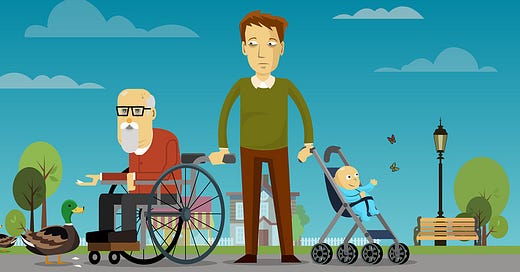



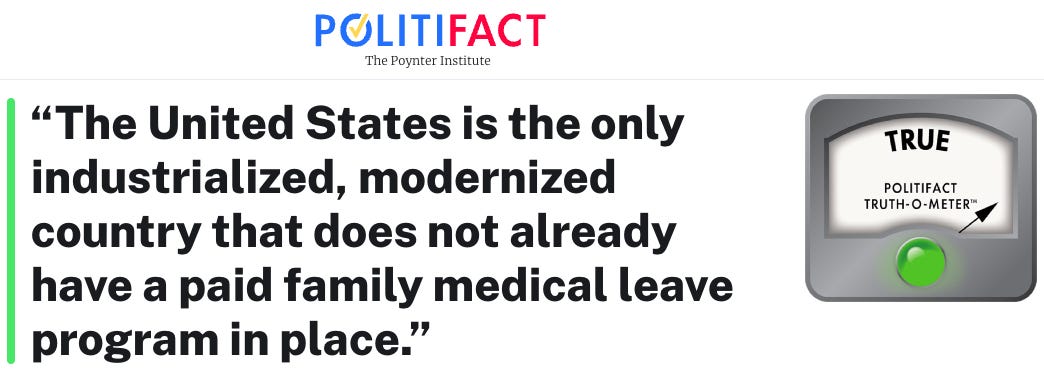
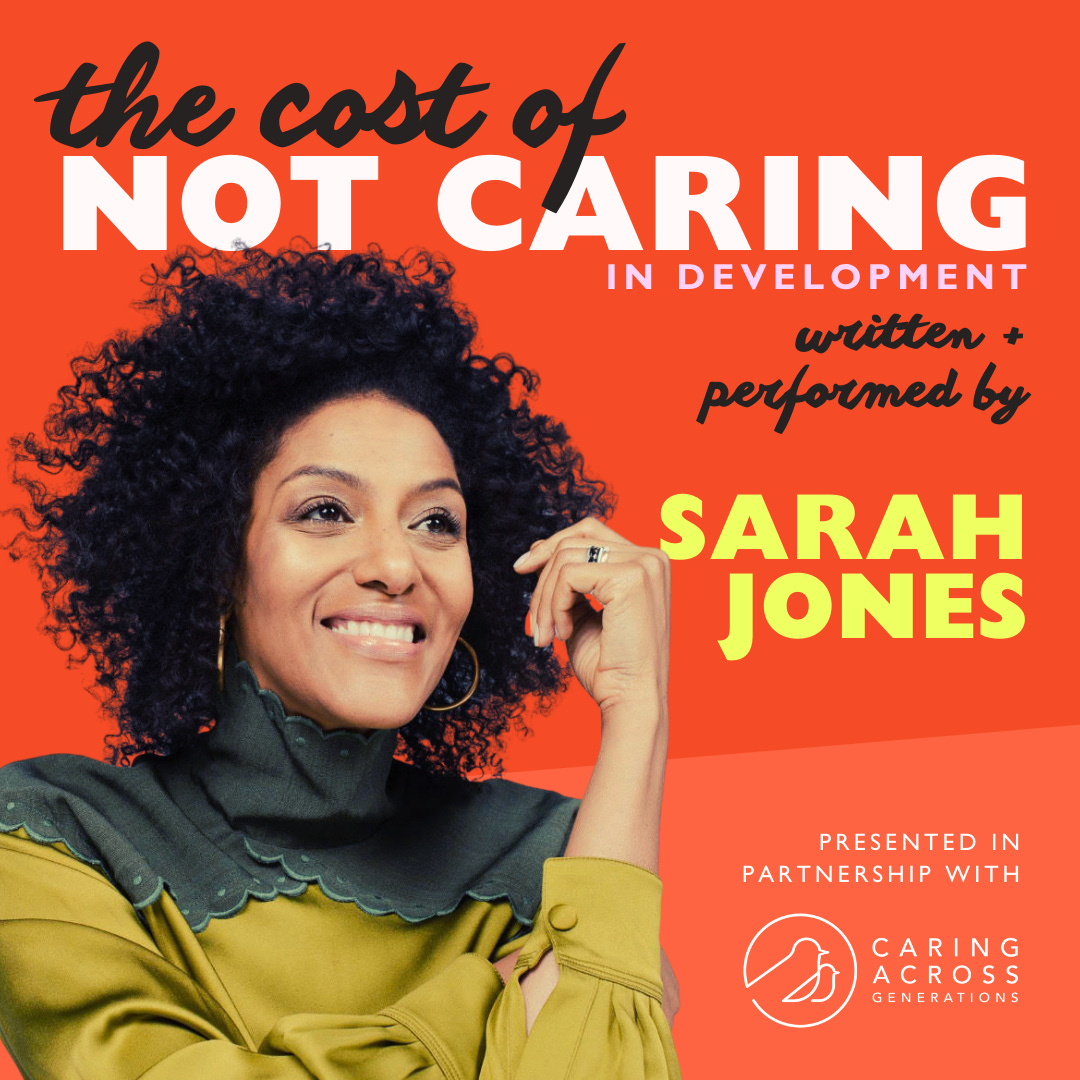
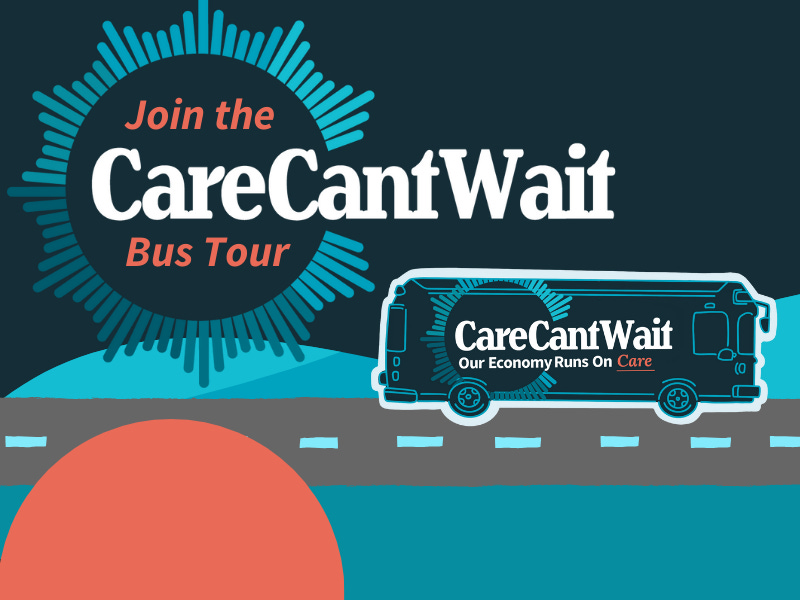
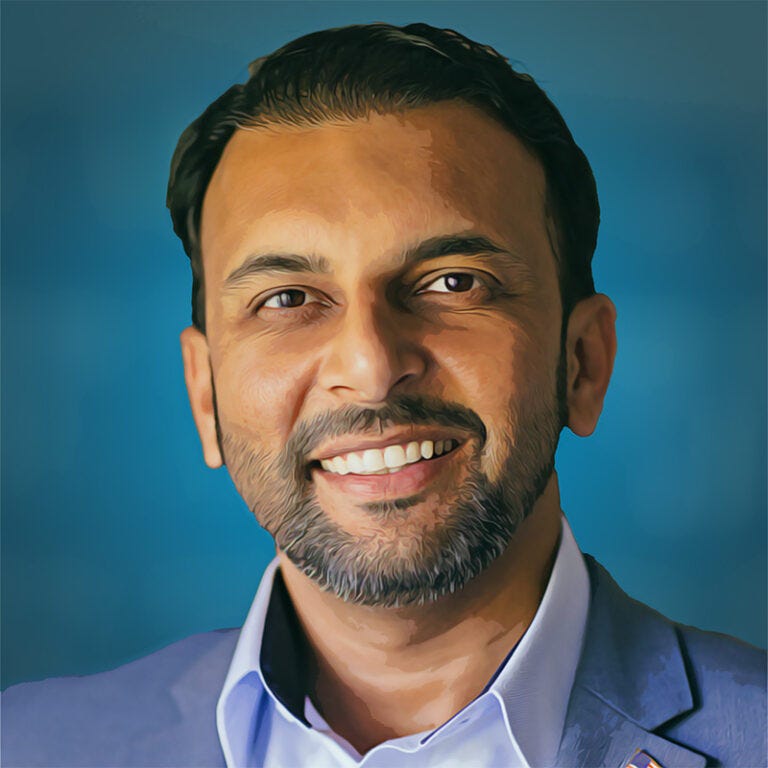
Boy, did you hit the nail on the head. I'm sorry for you, Huley Brown, HRL, and everyone else stuck in this place.
Your post described the US as industrialized, which it is, but not enough, regarding renewable energy sources, modernized, which has the same limitation, and doesn't say civilized, which we're not.
"The only industrialized nation on earth that doesn't guarantee universal paid family medical leave." The only one on earth. Somehow, everyone else gets it. But we don't. Now there's something to be proud of. Our imagined big accomplishment is giving tax breaks to people who have vastly more money and income than they could ever imagine what to do with.
Thanks for addressing this, Qasim!
While all the other so-called "advanced" nations have had universal healthcare since way back in the previous century, as well as numerous not so "advanced" or "developed" nations, including Cuba, Costa Rica & Thailand (yes, Cuba has better healthcare than the US as well as longer lifespans, how about that?). Medicare coverage doesn't even include hearing, vision or dental, 3 key health concerns for the elderly. Yet we pay twice as much as these other countries, which goes to show how poor & inefficient our healthcare system is, all to prioritize profits for hospitals, insurance companies & pharmaceutical companies. We also prioritize the profits of dirty fossil fuel corporations & their privilege of plundering our land & polluting our air & water, causing & exacerbating health problems for millions of Americans all for their profit above the health & welfare of the public.
Not only is our healthcare dysfunction harming those in the "sandwich" situation, having to take care of & pay for the health of their parents as well as their children, but also to people entering their golden years without anyone to help them out, & having to pay for & take care of themselves on their own. It's a form of cruelty to our citizens that has been wrought by the collusion of corporations with government (particularly the Republican/corporatist kind). Same with housing, by the way.